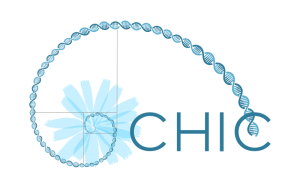EU-level Stakeholder Consultation
on the future role of new genomic techniques
for plant breeding and derived products in the EU
6 Oct 2021, 10:00- 16:00, online
organised by the CHICORY INNOVATION CONSORTIUM funded by the European Commission
Interested? Register here!
Click above to participate!
File download
To download the complete PDF version, please click above.
WHY A STAKEHOLDER CONSULTATION AT THIS POINT IN TIME?
An European Commission study published on 29 April 2021 indicates that -– in the future – the use of certain types of new genomic techniques (NGTs) in plant breeding and, hence, the products derived from these plants might be exempted from EU GMO legislation [1]. Recent surveys suggest that consumers might perceive these products differently compared to the category of genetically modified (GM) plants presently on the market [2, 3, 4].
WHAT TOPICS WILL BE ADDRESSED IN THE CONSULTATION?
In the light of the above-mentioned developments, we would like to discuss with you
- The anticipated impact of such exemptions on activities in your field(s)
- Assuming that such exemptions will in fact be established in EU legislation: what would be other relevant factors to facilitate a responsible innovation and predictable business development of NGTs and derived products?
We would like to discuss these issues both in more general terms AND by focussing on the example of NGT chicory plants developed by the CHICORY INNOVATION CONSORTIUM. Our preliminary results suggest that very small genetic changes could substantially improve and broaden the role of root chicory for the production of valuable and health promoting ingredients in foods, food supplements, cosmetics, and pharmaceuticals (e.g. inulin, terpenes etc.). For more information on our chicory-related activities, see https://chicproject.eu/.
The results of this consultation will inform EU-level and national policy makers, academia, industries, farmers and civil society organisations.
WHAT ARE THE REASONS TO PARTICIPATE?
The consultation will bring together a broad range of experts and stakeholders from the field and provide
- Topical information on legal and policy developments and results of national consumer and stakeholder consultations related to NGTs and derived products
- Topical information on the potential of root chicory
- A forum to bring in your views and exchange perspectives with stakeholders relevant to your area
- A consultation agenda tailored to interests and information needs of preregistered participants (see link below)
- Chatham House Rules in order to facilitate open discussion
- Therefore, anonymised reporting of the consultation (neither names nor affiliations of participants will be included)
- Online meeting – not susceptible to possible travel restrictions
- Participation free of charge
Participants of the online consultation will receive an invitation to a follow-up consultation planned as face-to-face meeting in or nearby Brussels in mid-2022 (including support for travel expenses if needed).
Please use the following ( –> REPLY FORM <-- ) to inform us whether or not you are interested in contributing to this discussion, and if so, in which form. We are looking forward to receiving your reply until 15 August 2021.
Even if you are not considering to participate, we kindly ask you to complete our short ( –> online survey on NGTs <-- ). It will take no longer than 8 (!) minutes of your time and your replies certainly will be of great help in understanding what European stakeholders think about the recent developments.
References:
[1] European Commission (2021). Study on the status of new genomic techniques under Union law and in light of the Court of Justice ruling in Case C-528/16. Commission Staff Working Document SWD(2021) 92 final, 29 April 2021. Available here: https://ec.europa.eu/food/plants/genetically-modified-organisms/new-techniques-biotechnology/ec-study-new-genomic-techniques_en, last visited 8 July 2021.
[2] An, H., Adamowicz, W. L., & Lloyd-Smith, P. (2019). Strategic behavior in stated preferences and the demand for gene-edited canola. 2019 Agricultural & Applied Economics Association Annual Meeting, July 21-23, Atlanta (GA). https://ideas.repec.org/p/ags/aaea19/290837.html, last visited April 13, 2021.
[3] Muringai, V., Fan, X., & Goddard, E. (2020). Canadian consumer acceptance of gene-edited versus genetically modified potatoes: A choice experiment approach. Canadian Journal of Agricultural Economics/Revue Canadienne d’agroeconomie, 68(1), 47–63. DOI: 10.1111/cjag.12221.
[4] Siegrist, M., & Hartmann, C. (2020). Consumer acceptance of novel food technologies. Nature Food, 1(6), 343–350. DOI: 10.1038/s43016-020-0094-x.

 This project has received funding from the EU Horizon 2020 research & innovation programme under grant agreement N. 760891.
This project has received funding from the EU Horizon 2020 research & innovation programme under grant agreement N. 760891.